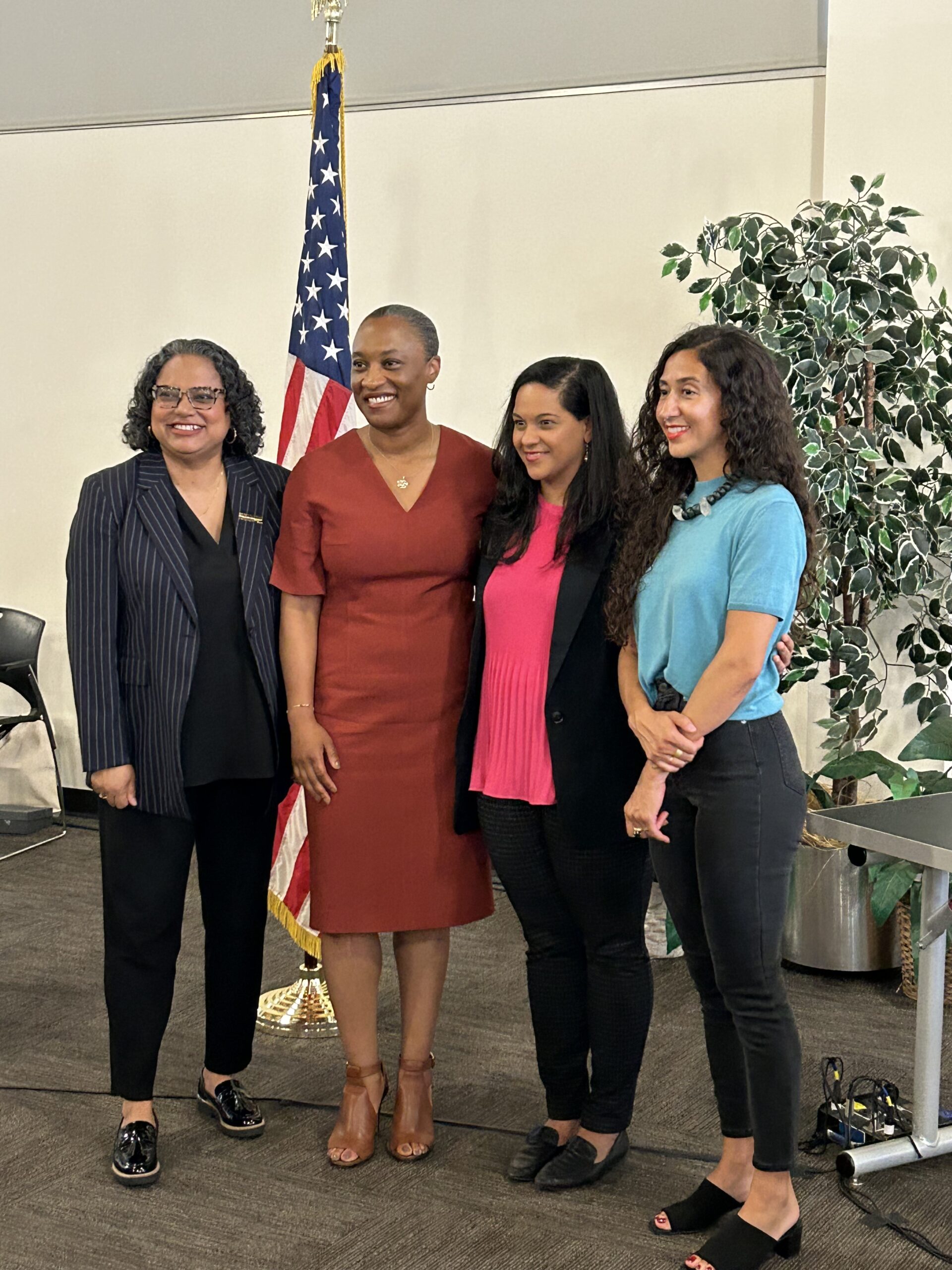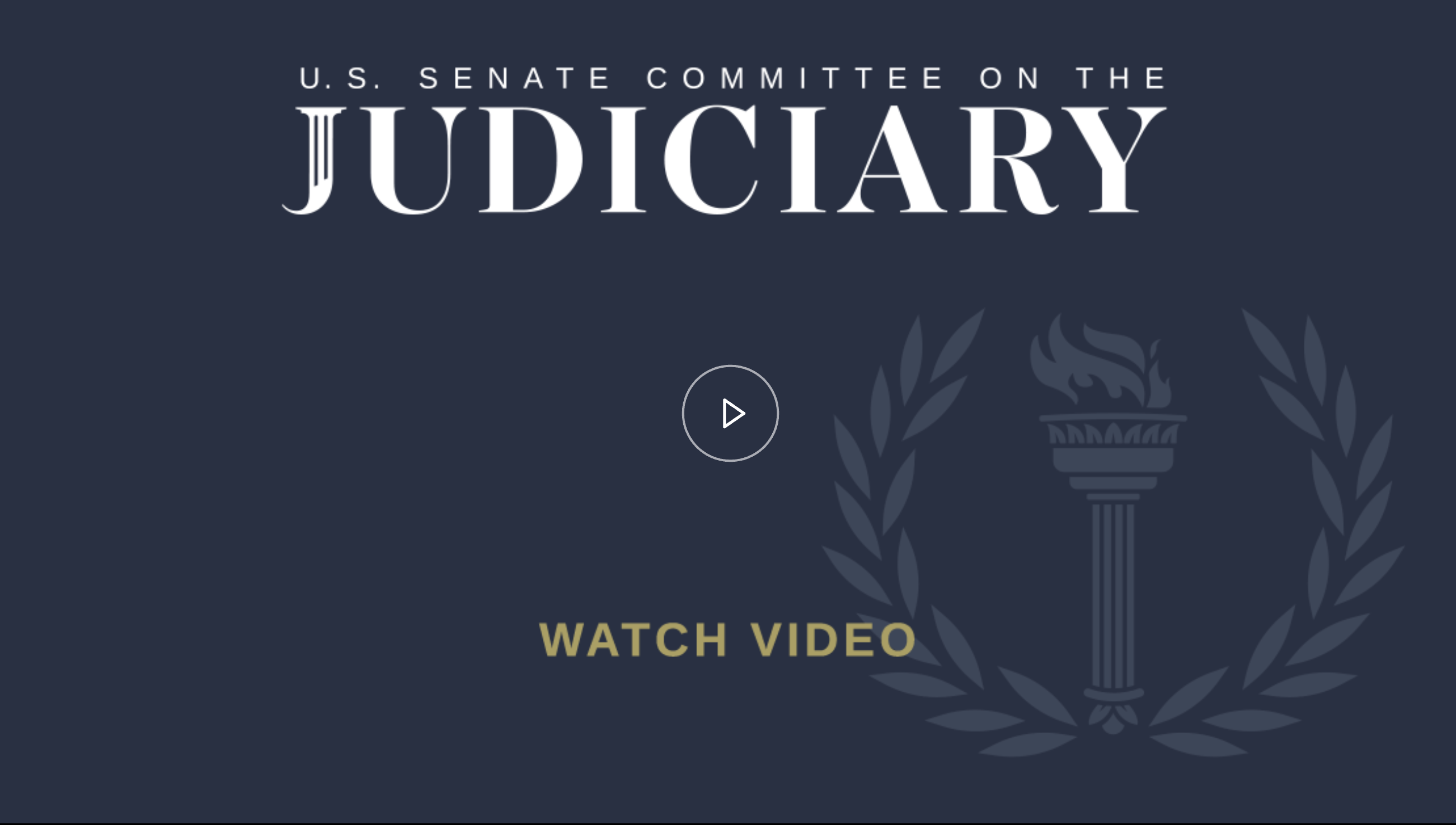It’s summertime, and temperatures aren’t the only thing on the rise (you guessed it, we are talking about abortion restrictions!). Just last month, following the two-year anniversary of the Dobbs decision to overturn Roe v. Wade, we received multiple updates from the Supreme Court of the United States regarding cases that impact our right to access abortions.
At this point, 41 states have abortion bans in place with only limited exceptions, 14 states have total abortion bans, and 7 states ban abortion at or before 18 weeks’ gestation (Guttmacher, 2024). While technically, abortions are still legal in states like Arizona, there are many barriers to care, the main one being the 15-week abortion ban. On June 25th, Arizona-based ob/gyn and PRH Fellow Dr. Misha Pangasa testified in an Arizona field hearing before the US Senate Committee on the Judiciary’s Subcommittee on the Constitution. Joined by Reproductive Freedom for All President and CEO, Mini Timmaraju and Pro Choice Arizona and Arizona Abortion Fund Executive Director, Eloisa Lopez, together, they were able to provide important medical, political, and psychosocial information that outlines the true impact abortion restrictions are having on not just Arizonians, but on the community as a whole.
The Testimonies
 Ms. Lopez kicked off the testimonies by sharing how she was motivated to do her work as an abortion patient turned advocate. She spoke of the barriers that she and many people on the margins of oppression face in conservative states like Arizona, and how since the Dobbs decision, things have gotten even harder for the most vulnerable members of the community. Ms. Lopez discussed how being able to truly plan for children has helped her achieve and maintain a fulfilling life for herself and her family. The same should be available for all birthing people no matter where they are geographically.
Ms. Lopez kicked off the testimonies by sharing how she was motivated to do her work as an abortion patient turned advocate. She spoke of the barriers that she and many people on the margins of oppression face in conservative states like Arizona, and how since the Dobbs decision, things have gotten even harder for the most vulnerable members of the community. Ms. Lopez discussed how being able to truly plan for children has helped her achieve and maintain a fulfilling life for herself and her family. The same should be available for all birthing people no matter where they are geographically.
Ms. Timmaraju spoke about the weaponization of the court by anti-abortion lawmakers to build even more restrictions. Her testimony revealed that these laws are not by any means reflective of the needs and desires of the people in Arizona, but instead are part of a white supremacist playbook. The people in Arizona however have gone out of their way to show that they will NOT accept these attacks on their reproductive freedom. By turning out to vote, collecting hundreds of thousands of signatures to set up a ballot initiative to protect abortion in the AZ constitution, and calling for court investigations and reform, Ms. Timmaraju stressed the importance of people power in this movement.
Dr. Pangasa concluded with reflections on her experience as an abortion provider. She spoke of the direct impact this evolving legislative landscape is having on patients, providers, and our health system as a whole. See details from Dr. Pangasa’s testimony here.
When asked by Presiding Chair Bulter “Can you speak to the safety and effectiveness of abortion?” Dr. Pangasa highlighted the complex, fluid, and nuanced nature of pregnancy and health in general. Despite these complexities, essential, life-saving health care procedures like abortions are straightforward with a 1-2% likelihood of complications (so about as risky as a colonoscopy or getting your wisdom tooth removed). Dr. Pangasa stressed that having access to abortion care to be able to counsel patients about their full range of options in the context of their lives is and always will be essential. Mental health, family planning, and the health care landscape overall were also discussed during the Q&A portion of the hearing.
Some of the Highlights from the Q&A
When asked about the mental health impact these abortion restrictions have on patients, Dr. Panagasa responded:
“Patients have a tremendous amount of relief from their abortions. People who are denied abortions are more likely to struggle with their mental health. In my own practice, the anecdotes I see echo the evidence, which is that denying somebody the access to abortion which they have thoughtfully made a decision about, has much more profound impacts negatively on their mental health than allowing them the full range of options.”
Now in the context of abortion restriction, the courts are not the only thing being weaponized against the most vulnerable members of the community. Dr. Pangasa highlighted the growing concerns about patient privacy, emphasizing that fear and uncertainty about legal repercussions are deterring individuals from seeking necessary health care. This fear is particularly pronounced in communities of color, who already face heightened surveillance and criminalization.
The lack of trust between patients and providers can lead to severe health consequences, as patients withhold critical information. The “don’t ask, don’t tell” approach is devastating for health care professionals committed to providing safe, evidence-based care. Ms. Lopez added that technological tools like period tracking apps pose privacy risks, as seen in cases where states subpoena medical records to track abortion access, forcing people to live in a state of caution regarding their healthcare choices. Additionally, Ms. Timmaraju stressed the importance of scrutinizing tech giants for data integrity issues and supported the “My Body My Data Act” to protect personal health information from being weaponized. These issues highlight significant challenges that could erode trust in the healthcare system and ultimately exacerbate health outcomes for everyone.
When discussing the broader effects of abortion restrictions on the health care system, Dr. Pangasa remarked:
“At the individual level, both patients and providers are constantly trying to navigate medically unnecessary regulations that often push patients further into their pregnancies. From a larger perspective, being able to practice evidence-based healthcare is an incredibly important component of why people become physicians. People go into this [health care] to be able to deliver the best care for their patients. When they are faced with a decision of whether they can treat patients the best way they know how, or if they have to maneuver medically unnecessary bureaucratic and politically motivated barriers, it deters people from working in those places. There are so many communities already marginalized by the healthcare system with access limitations, as providers leave, the cost on those communities only expands. There are states in this country where over a quarter of ob/gyns have left. That doesn’t just impact people who want abortions, it impacts people who need to go to the hospital.”
The Future is Still Bright (even if we have to squint!)
Looking ahead to the future of reproductive justice, Ms. Lopez emphasized the transformative power of personal narratives in normalizing discussions about abortion and reproductive health. By fostering cultural change and challenging stigma, we can create a more inclusive environment where all individuals can access the care they need without shame or fear. Dr. Pangasa, reflecting on her experiences in Arizona, acknowledges the daunting barriers yet remains optimistic about the impact of collective efforts to expand healthcare access. Her decision to return to Arizona after her training underscores the resilience and determination of those advocating for reproductive rights in challenging, restrictive environments.
Amidst these challenges, Ms. Timmaraju highlights the urgent need for comprehensive support systems beyond childbirth, advocating for policies such as paid leave and enhanced health care infrastructure. This holistic approach acknowledges the interconnectedness of reproductive health with broader societal factors like economic stability and safe physical environments. Moreover, the engagement of younger generations in advocating for reproductive justice signals a hopeful shift towards policies that prioritize inclusivity, equity, and our collective liberation.
Despite current setbacks and ongoing legislative battles, these leaders inspire hope that progress is possible. They envision a future where reproductive freedom extends beyond the limitations of Roe v. Wade, encompassing full-spectrum reproductive health care from sex education to family planning. By harnessing the power within our collective resilience, there are many opportunities to transform adversity into a catalyst for lasting change, ensuring that every individual has the autonomy and support to thrive. We can do this…together.
Mani Vinson
Communications Coordinator
